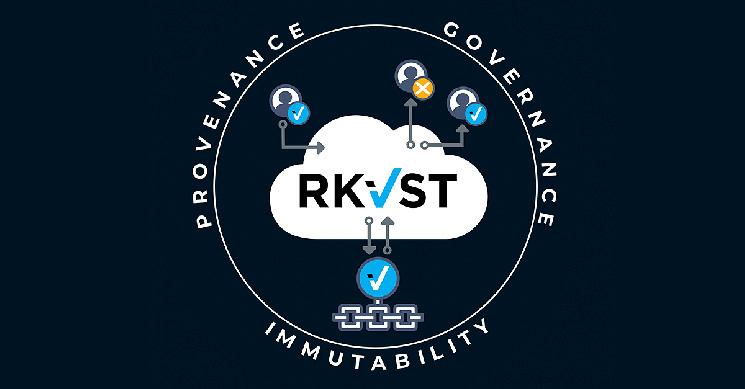Blockchain
The increasing volume of transaction data is creating significant storage issues and RKVST has just been awarded a patent that could revolutionize the blockchain industry. By tackling these issues head-on, RKVST hopes to improve blockchain scalability, performance, availability, and cost-effectiveness.
In recent years, blockchain and distributed ledger technology (DLT) have become integral parts of sophisticated online communication systems. Beyond cryptocurrencies and NFTs, the secure storage, exchange and computation of data within a shared responsibility system has far-reaching implications. Supply chain management, environmental efforts, social and governance (ESG) implementation, the Internet of Things (IoT), regulatory compliance and auditing are just a few of the many areas where these technologies can be useful.
The amount of data created by blockchains increases as they record and track a series of transactions, requiring more space to store it. Since data stored on a blockchain cannot be changed later, there will always be a need to keep copies of it. These difficulties create roadblocks to efficiency, effectiveness, scalability, and performance.
Details of the new development
The recently patented Data Structure Storage Optimization, developed by inventors Jon Geater and Mansoor Ahmed-Rengers, offers a new approach to store chained data in a flexible way without compromising end-to-end cryptographic verifiability. The rising cost of data management is a major concern, and this creative approach helps address those concerns.
RKVST is committed to making blockchain technology practical for real-world commercial applications, as co-founder and chief product officer Jon Geater states. Supply chain management can greatly benefit from RKVST’s blockchain-powered platform as it enables the verification of data provenance, provenance and validity. In his speech, Geater underlined how the implementation of the patented technology ensures portable data integrity, transparency and long-term trust without adding to the burden of increased operational overheads.
While current approaches attempt to address the blockchain storage problem by using block compression and other space-saving strategies, these solutions are really band-aids. Storage problems often reoccur. RKVST’s invention could have far-reaching implications, dramatically improving scalability and efficiency, and accelerating the widespread adoption of blockchain technology for use in enterprise applications.
To ensure the reliability of information shared between companies, RKVST was established with the intention of putting an end to the tedious, costly and error-prone procedures associated with such activities. To quickly and securely confirm the legitimacy of digital assets, you can use the RKVST API.

